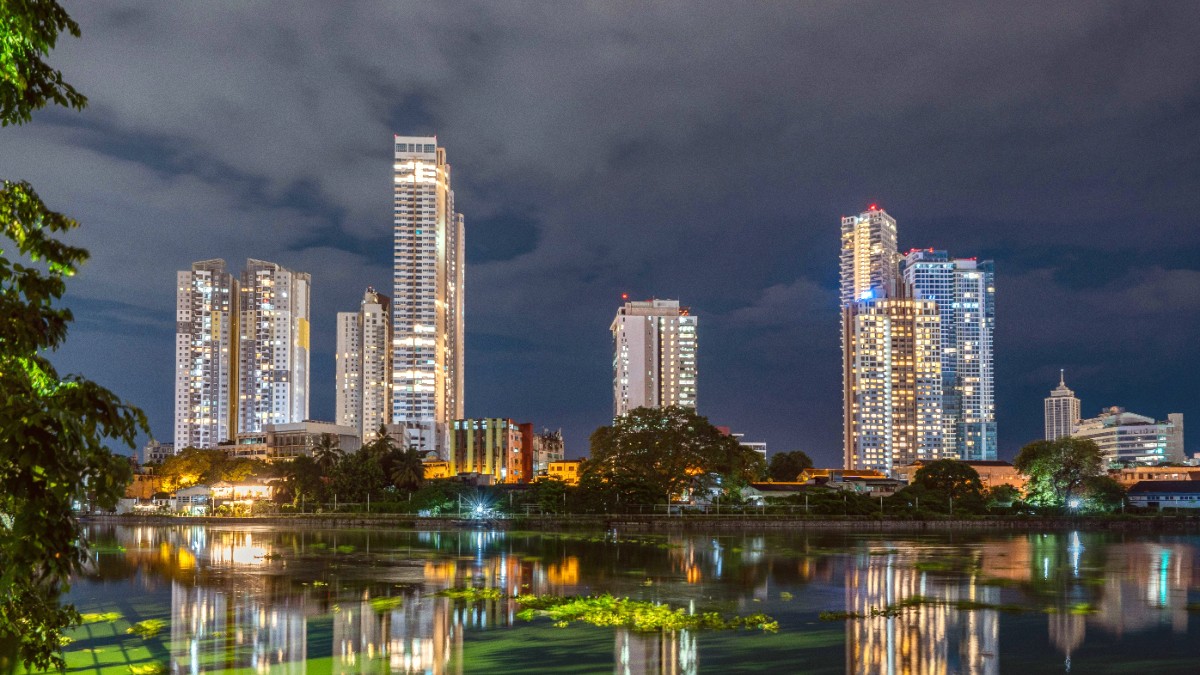
Sri Lanka
Colombo has a tropical monsoon climate, meaning it is warm and humid throughout the year. The rainfall patterns are the main factor influencing visitor comfort and activity options.
During the Southwest Monsoon, heavy rainfall leads to localized urban flooding. Travelers during this period need preparedness for wet conditions. Carry an umbrella or a Light rain jacket. While temperatures are consistently warm, the high humidity feels hotter. Stay hydrated and avoid strenuous outdoor activities during the hottest parts of the day.
The high season runs from December to March, with drier, sunnier weather. Prices for flights and accommodation are highest then, and attractions are more crowded. Book well in advance. Shoulder seasons are April and November, with fewer tourists and potentially lower prices, but unpredictable weather. The low season (May to September) offers significant discounts and fewer crowds, though heavy rainfall is common.
For comfortable sightseeing, aim for mornings or late afternoons. Mid-day sun can be intense.
Ideal times for specific experiences
December to March offers comfortable weather for walking tours.
December to March is the best time for beach visits and water sports.
Festivals throughout the year
A major Buddhist festival in May with city-wide decorations.
Occurs in April, bringing unique cultural celebrations.
Special climate considerations
Southwest Monsoon brings heavy rains and possible urban flooding.
High humidity makes temperatures feel hotter; stay hydrated.
Electronic Travel Authorization (ETA) for short visits. Apply online via the official ETA Sri Lanka Government Portal. Visa on Arrival is less common. For longer stays, apply through an embassy or consulate.
Passport valid for six months from arrival, proof of confirmed return or onward ticket, and evidence of sufficient funds. Photos for other visa types.
Approximately USD 50 (early 2024). Payment is online. Immigration officers take fingerprints and photos.
No special permits typically needed for general tourism within Colombo. Access to certain protected areas may need permits.
For travelers aged nine months or older if arriving from or transiting through a country with Yellow Fever risk.
A completed health declaration form may be needed upon arrival.
Visa policies can change, always check official immigration website.
The local currency is the Sri Lankan Rupee (LKR). Banknotes range from LKR 20 to 5000. Exchange foreign currency at the airport or city banks. ATMs are widely available and accept major international cards. Visa and MasterCard are accepted at most hotels, larger restaurants, and shops. Carry some cash for smaller vendors, local transport, and street food.
Daily Averages (excluding international flights)
This table breaks down costs for various categories, providing estimates for typical expenses across different travel budgets.
Prioritize your health and safety when traveling to Colombo.
Important details to keep your trip safe and comfortable.
Colombo is generally safe for tourists. Serious violent crime against tourists is rare. Petty crime like pickpocketing and bag snatching can occur in crowded areas. Be notably vigilant in busy markets like Pettah and on crowded public transport. Keep valuables out of sight.
Be wary of touts around tourist sites and transport hubs. They may present unsolicited services or "special deals" that are overpriced or misleading. Politely decline and walk away. Tuk-tuk drivers may try to inflate fares or take longer routes if you do not use a ride-sharing app or negotiate a price.
Police, Ambulance, Fire, Tourist Police numbers for urgent situations.
Police: 119, Ambulance/Fire: 110
Tourist Police (Colombo): 011-2421052
Travel insurance is highly recommended. Your policy should present comprehensive coverage for medical emergencies and more.
Covers medical emergencies, trip cancellation, luggage issues.
Emergency medical evacuation coverage is good.
In an emergency, contact your home country's embassy or consulate after local authorities.
Keep digital and physical copies of important documents.
Share your itinerary with a trusted contact back home.
| Category | Safety | Hygiene |
|---|---|---|
| Drinking Water | Tap water not safe. Stick to bottled water. | Ensure seals are unbroken. Consider filtered bottles. |
| Food Hygiene | Eat hot, freshly cooked food. | Be cautious with raw items unless peeled or washed. Avoid unhygienic stalls. |
| Tsunamis | Low daily risk, but coastal areas have warning systems. | Familiarize with emergency procedures if near coast. |